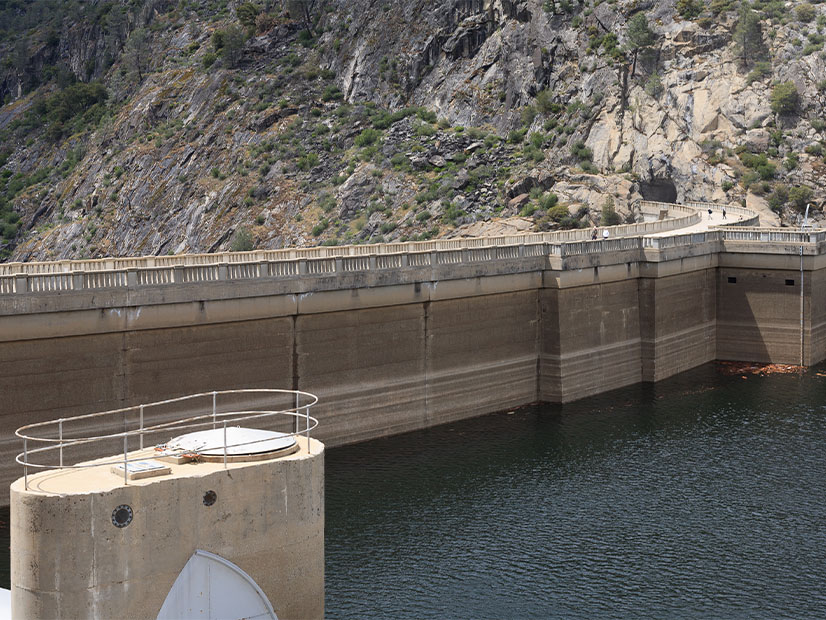The D.C. Circuit Court of Appeals on Aug. 23 ruled in favor of Pacific Gas and Electric (PG&E) in the latest twist in a nearly two-decade dispute with San Francisco over a distribution system wheeling contract between the two entities (No. 23-1041).
At issue in the case, which was remanded back to FERC, is PG&E’s application of its wholesale distribution tariff (WDT) to the municipal electricity customers of the San Francisco Public Utilities Commission (SFPUC), a city-operated utility. (See FERC Refuses Rehearing of PG&E-San Francisco Dispute.)
SFPUC, which operates a hydroelectric project in California’s Hetch Hetchy Valley, supplies electricity to individual consumers, schools, public housing tenants, libraries and municipal departments using the distribution system PG&E owns and operates in San Francisco — making it both a customer and competitor of PG&E.
Since 2014, San Francisco has argued to FERC that PG&E has unreasonably denied distribution to many of SFPUC’s approximately 2,200 metered delivery points, under section 212(h) of the Federal Power Act.
That section prohibits forcing a utility such as PG&E to deliver another utility’s power through its distribution lines, but it also exempts cities and counties where “such entity was providing electric service to such ultimate consumer” on the date the subsection was enacted: Oct. 24, 1992.
PG&E has countered that it wasn’t obligated to provide service to any delivery point where SFPUC didn’t provide service as of October 1992.
In 2019, FERC issued an order disagreeing with an initial decision by a FERC administrative law judge (ALJ) who had supported San Francisco’s argument by citing the commission’s November 2001 orders under Suffolk County Electric Agency (96 FERC ¶ 61,349). In that set of decisions, FERC said section 212(h) grandfathered classes of customers, not individual customers at specific delivery points.
In overruling the ALJ, FERC’s 2019 order found Suffolk to be inapplicable to the San Francisco dispute and said PG&E had not been unreasonable in denying service to some SFPUC customers. The commission found that PG&E’s “point of delivery” approach to determining which customers were entitled to service under the WDT was just.
In January 2022, the D.C. Circuit reversed FERC’s 2019 ruling, sending the case back to the commission on remand after finding that the WDT’s reference to “points of delivery” does not imply that only specific points of delivery may be grandfathered under the agreement.
In its October 2022 order on remand, the commission followed the court’s direction and agreed with the city that FERC’s precedent didn’t limit grandfathering to a fixed location, concluding that any of San Francisco’s load associated with “customer classes” being served on Oct. 24, 1992, were entitled to grandfathered service under the WDT.
The commission in March 2023 rejected PG&E’s request for a rehearing (EL15-3).
‘Ultimate Consumer’
But the D.C. Circuit’s Aug. 23 ruling vacated the October 2022 order and again remanded the case back to FERC.
PG&E’s petition to the court focused on the FPA’s definition of an “ultimate consumer” and the risks to PG&E of FERC conflating that concept with “customer class.” The utility argued that the commission’s October 2022 ruling would force it to use its facilities “to serve a potentially unlimited number of [future such] customers” and that it must “incur … costs to acquire and maintain the facilities necessary to serve those customers.”
PG&E further contended that FERC’s “broad class-based” interpretation of the WDT’s grandfathering clause could not be reconciled with the plain meaning of “ultimate consumer” under the FPA.
The court agreed, finding that FERC “cannot order PG&E to wheel electricity to ‘an ultimate consumer’ of SFPUC unless SFPUC ‘was providing electric service to such ultimate consumer on Oct. 24, 1992.”
“Considering the text and structure of section 824k(h)(2), as well as the broader statutory context, we conclude that ‘ultimate consumer’ does not refer to an atextual class or group of consumers,” the court found. “FERC’s orders are therefore contrary to law.”
FERC “must apply the plain meaning of [FPA] section 824k(h)(2) consistent with this opinion and determine which of SFPUC’s consumers qualify for wheeled service under” the WDT, it concluded.




